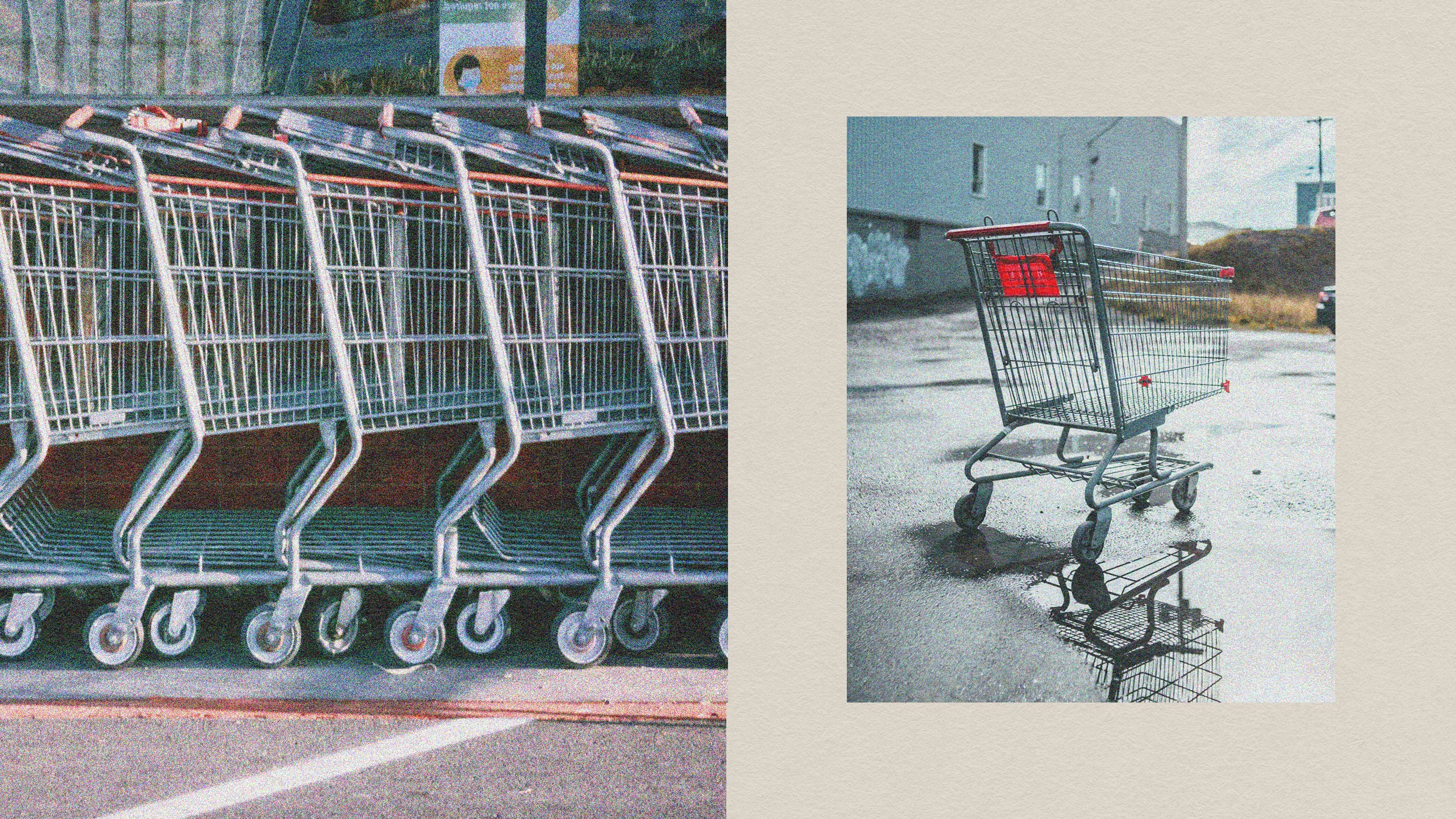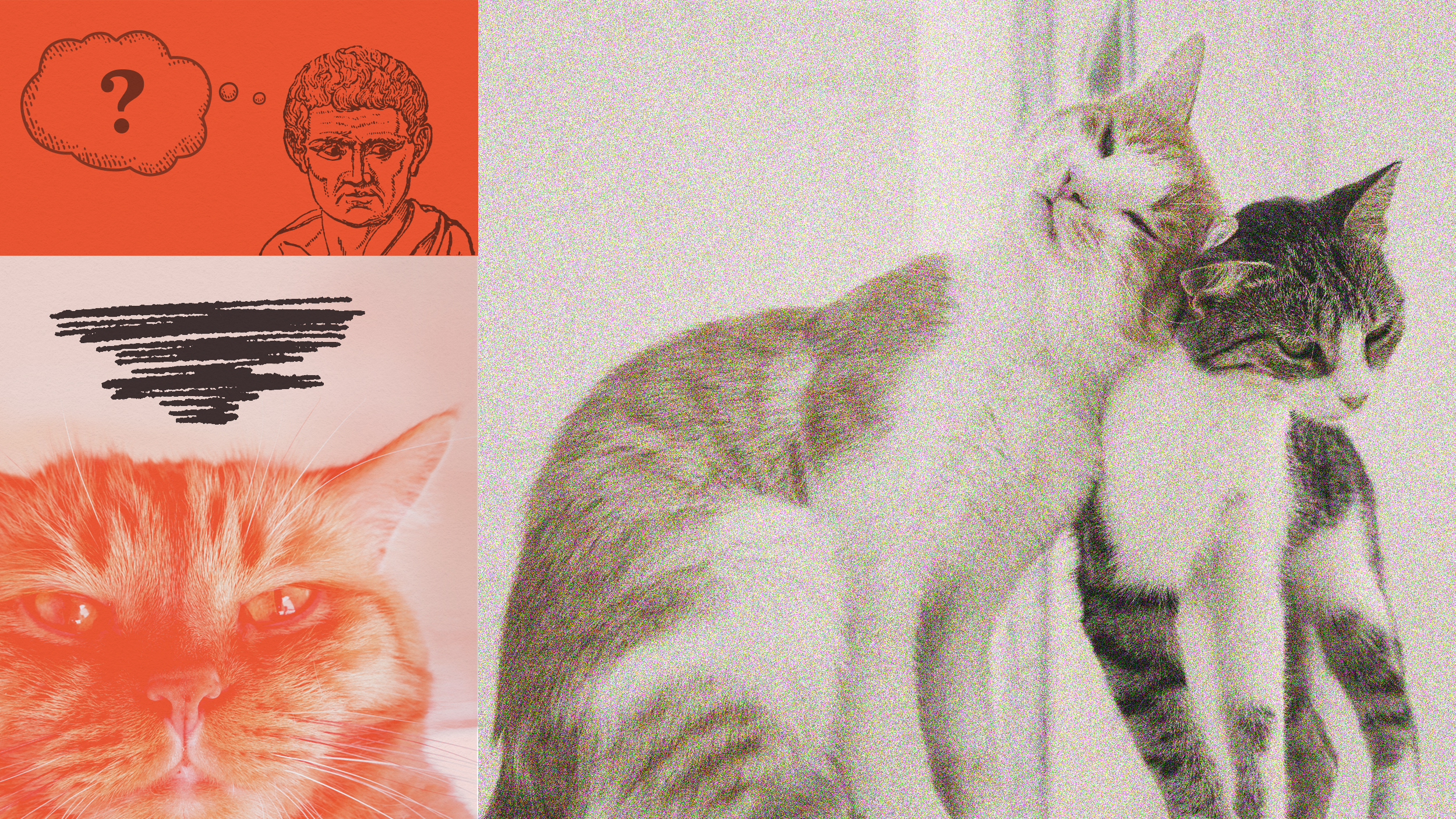Everyday Philosophy: “Should I hide my wild past from my parents?”

- Welcome to Everyday Philosophy, the column where I use insights from the history of philosophy to help you navigate the daily dilemmas of modern life.
- This week, we look at maternal relationships and the masks that we all must wear.
- To explore this dilemma, we call upon Erving Goffman’s dramaturgical theory and Soren Kierkegaard’s existentialism.
I have had a long and “crazy” life. A lot of what I learned from difficult experiences has and can help others. I have put off writing a book about my life because it might upset my 91-year-old mother. I do have a blog, but I could write more for it. Should I be patient or stop worrying about upsetting my mother and write about my life?
– Ataina, US
I was really taken with this question because I’ve experienced the same thing, but in reverse. I asked my dad three years ago to write an autobiography — an in-house thing for Thomsons to read down the generations. He took to the idea and took to writing. A week later, he called me up and said, “Jonny, I’ve had to stop. I’m worried about what you and others might think of what I’ve done.”
Now, my dad is a gentle, kind, and squeaky-clean kind of retiree. He’s an ex-headmaster and psychologist who likes science fiction and golf. He’s not Keith Richards, climbing up a palm tree, high on amphetamines. My dad is so open about everything that I can’t imagine he even has a closet, let alone any skeletons in there. But he clearly thinks so. He cares about his legacy and his reputation.
So, if I may, I’m going to make this question a bit broader. I’m going to make it about authenticity and honesty. Let’s consider the question: Should we ever live a lie to protect a meaningful relationship? To answer that question, we are going to explore Erving Goffman’s dramaturgical concept that “there is no self” outside of our relationships. And, to argue the other side, we’ll call upon that brooding Danish son of a preacher man: Soren Kierkegaard.
Goffman: All the world’s a stage
There is a common refrain in a lot of world philosophies that states that when you strip away all the social baggage and environmental fluff, you will find your true self. Whether it be a religious soul, Descartes’ res cogitans, or the existentialists’ “authentic self,” the idea is that underneath everything we have a personal identity and core — a true self and a real me.
For Goffman, this isn’t the case. Our identities are entirely defined by our social-facing identities. We change who we are when we are around other people. Not only do we present ourselves a certain way, such as in how we talk or how we behave, but we even think a certain way. Our entire being changes when we are around other people. The idea that we wear masks all of the time is not an original thought. But the idea that there’s nothing behind those masks? That’s a bit more exciting.
All of this means that “Ataina” doesn’t exist as a pure, abstract identity. We have only Ataina the Friend, Ataina the Lover, and Ataina the Daughter. It’s this last identity that brings the point home and brings Goffman to the problem. We should do all within our power to protect a relationship. Ataina has to only play the role she is given and behave as the script demands. And the script, in this case, sounds like being a kind, dutiful, and respectful daughter. The two-person drama that plays out between Ataina and her mother sounds like one where they do not talk about “crazy” things. In this play, the mother sees Ataina as her polite and innocent little girl. For Goffman, protect the relationship. Wear the mask. Tell the lie.
Kierkegaard: The midnight hour
You can say what you want about European high society in the 19th century, but they knew a thing or two about masks. Theirs was a life entirely defined by looking the bit and making sure everyone saw you looking the bit. It was a society, metaphorically and literally, jammed into corsets. And Kierkegaard didn’t like it one bit.
Kierkegaard believed that there comes a time when the mask starts to suffocate you so much that you find yourself either passing out or screaming in an often-destructive rebellion. The mask is thrown on the floor and stomped upon. This is what Kierkegaard calls “the midnight hour,” when the weight of all the lies is too heavy to carry. For some, this suffocating burden goes on for dangerously long.
But the reason that these masks are so dangerous is because they are the very antithesis of love. As Kierkegaard wrote, a person “may be so inexplicably woven into relationships of life that extend far beyond himself that he almost cannot reveal himself. But he who cannot reveal himself cannot love, and he who cannot love is the most unhappy man of all.” For a lot of people, love involves the penetrating gaze of another who sees you for all you are and accepts everything they see. It’s when two people come back from a party, put on some pajamas, and let themselves be normal again. Love is without pretense. You cannot kiss someone in a mask.
So, Ataina, for Kierkegaard, your lies are keeping you from the love of your mother. For Kierkegaard, if your mom truly loves you, she will want to see all that you are — the “crazy” life as much as the strait-laced. She doesn’t want a mask. She wants to see you, however scared and weathered your face might be.
Different kinds of moms
As we saw a few weeks ago, philosophers can often be guilty of presenting an idealized, Disneyfied version of love. Kierkegaard might have a point that some kinds of love might “see behind the mask,” but that is not the only kind of love. It’s likely to be so incredibly rare as to be considered an outlier. There’s nothing wrong with the idea that you can love someone who presents a persona. You can love a role someone plays without having to love an “authentic core.”
In fact, if Goffman is right, it might be that there’s no alternative. Jean-Paul Sartre once discussed the idea of “the look,” where we change our entire being when watched by another. We’re different around other people, and the only time we’re “ourselves” is when we’re on our own. Every relationship involves some degree of choreography. Every relationship has ways of talking and ways of behaving; there are always some things left unsaid.
So, at the end of the day, it really depends on what kind of relationship Ataina has with her mother. If it’s a “warts and all” kind of love that has and always will be entirely transparent, then carry on in that way. That doesn’t seem to be the case here. And so, it might be that the best wisdom is to carry on the relationship as it’s evolved. Love your mom as you’ve always loved your mom.




